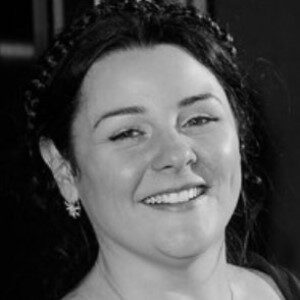Oorlagh George’s parents fled Northern Island as political activists and relocated to the Bronx, NY, when she was a child. “That community formed my sense of being an American—it meant being Puerto Rican, Jewish, Irish, Jamaican,” she recalls. During college, she traveled and expanded her awareness of the ways young people experience privilege, power, voice, and responsibility in diverse political and geographical locations.
“Why shouldn’t kids be exposed to that in high school?” Oorlagh asks, echoing the curiosity of Global Nomads’ founders. “It’s amazing to see your context in the world—why not find out even younger that you have a voice and power through connection?” In the early days, Oorlagh collaborated with Global Nomads to engage young people in conversation about tremendous disruptions in their culture and youth, including genocide. “I knew Global Nomads when they were running around with satellite dishes on their backpacks in Darfur,” she says. She’s sees the organization’s potential to become a mainstay in high school curriculum.
Oorlagh is an Oscar-winning filmmaker, writer, producer, and artist. She created the TV drama series Faultline and directed the film, Stranger With A Camera. She won the Academy Award for Best Live Action Short, along with her father, for their film The Shore, and a film she produced about reconciliation in Northern Ireland won 40+ awards in festivals and was released in cinemas worldwide. Oorlagh worked in various capacities on productions of Beginners, Adam, and Hotel Rwanda, among others.
“Global Nomads still has those same good ethics,” says Oorlagh, about the organization’s teaching materials and technologies. “Its focus on equity empowers young people to work together in a spirit of mutual exchange.” She appreciates how it also disrupts a Western-centric or us/them dynamic. “Kids work together to talk about history in a way that faces it and doesn’t repeat unjust dynamics.”



